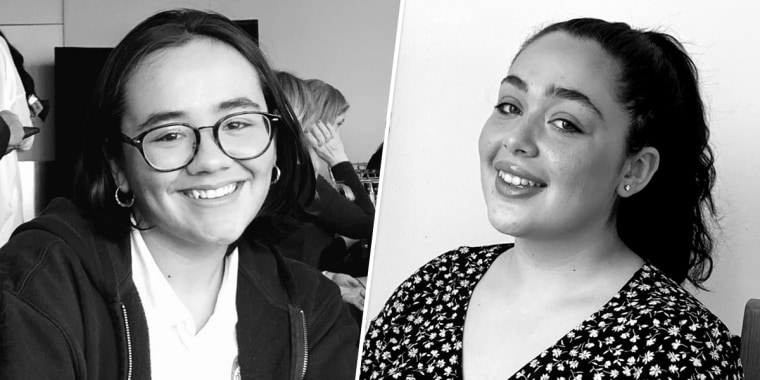Two New York City high school students are leading the way in expanding access to menstrual hygiene products amid the coronavirus pandemic.
“These products are extremely essential like food, water, shelter and just about anything else that people really need during this time,” said one of the students, Nicole Soret, 17.
Along with Mya Abdelwahab, 16, a fellow junior at the Young Women’s Leadership School of Astoria, Soret launched a social cause called “Femstrate,” which works with the city Department of Education to hand out free period products at meal hub sites in New York.
Last week, the Department of Education announced it would make the essential items available at 211 sites. Nathaniel Styer, the department’s deputy press secretary, confirmed that it had started distributing the pads and tampons on Monday, May 11.
“Because of the advocacy of these young people, we are making the feminine hygiene supplies in our schools available to the public at many meal hubs across the city,” Styer said.
Initially, Femstrate intended to investigate if schools were implementing a state law that requires middle and high schools to provide free menstrual pads and tampons in restrooms. However, when the pandemic hit and schools closed, Abdelwahab and Soret quickly came up with a new idea to urge the Department of Education to dispense its existing stock of menstrual hygiene products.
"As a community, as a society, we are at such a risk right now,” Abdelwahab said. “I think being able to take one stress off of a family or a person's life is really important.”
Abdelwahab and Soret wrote a letter to Mayor Bill de Blasio and Department of Education Chancellor Richard A. Carranza on April 6 and asked the city to continue providing the products during remote learning. Their request caught the attention of many city and state legislators, including Assemblywoman Catherine Nolan, a Democrat from Queens, who helped move their initiative forward.
“The idea that the city would make sure that it was available at sites is important,” Nolan said.
Assemblywoman Aravella Simotas, New York state Sen. Julia Salazar, and U.S. Reps. Carolyn Maloney and Grace Meng, all Democrats representing parts of Queens or Manhattan, also endorsed a petition started by Abdelwahab and Soret. It has received almost 1,400 signatures.
Access to menstrual hygiene products is a particular challenge during the pandemic, Maloney said.
“Many of our students rely on their schools for these products, and we need to make sure that this resource isn’t torn away from students during distance learning,” Maloney said.
Simotas agreed, and praised Abdelwahab and Soret’s work.
“In times of crisis, it is so easy to overlook the very basic essentials, and these two young ladies recognized the need and sprung into action,” the lawmaker said.
Femstrate also found a solution to reaching more people.
Abdelwahab and Soret started a GoFundMe fundraising campaign, and raised $3,000 and counting, to supply four non-Department of Education sites in two neighborhoods in Queens, Long Island City and Astoria, with menstrual hygiene products. The community distribution centers deliver pads and tampons to people who are unable to access the meal hubs.
“From front-line workers to families in need, the demand for menstrual products is high,” said Jennifer Weiss-Wolf, vice president of the Brennan Center for Justice at NYU School of Law and co-founder of Period Equity, which advocates safe, affordable and accessible menstrual products. “And while donation drives fill emergency gaps, they’re no substitute for policy interventions that ensure their accessibility.”

